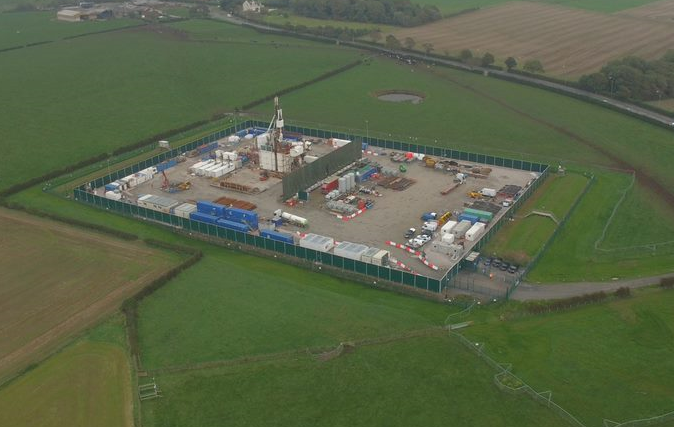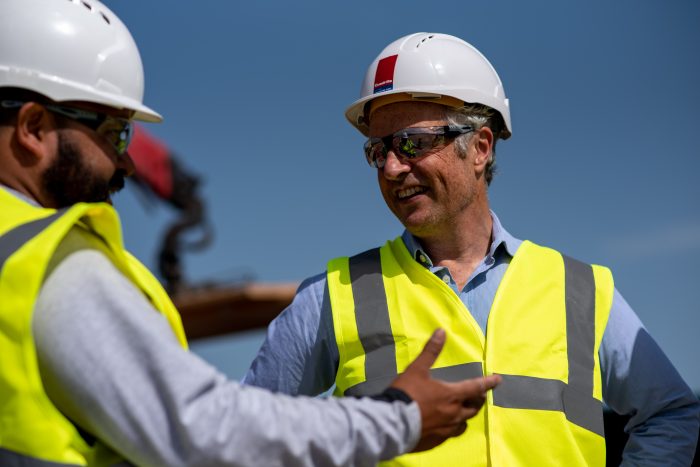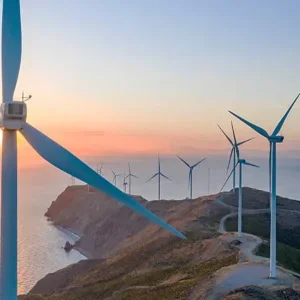
A study looking at the potential of UK fracking has found shale gas reserves could be a fraction of previous estimates.
In a 2013 report, the British Geological Survey (BGS) claimed the capacity of the reserves in the UK’s Bowland shale, located in central England, is large enough to cater to 50 years’ worth of the country’s gas demand.
Now, research by the University of Nottingham, using a new technique to measure the shale gas trapped in the ground, suggests there could be enough for just one decade.
The report’s author Professor Colin Snape said: “We have made great strides in developing a laboratory test procedure to determine shale gas potential.
“This can only serve to improve people’s understanding and government decisions around the future of what role shale gas can make to the UK’s energy demand as we move to being carbon neutral by 2050.”
Meanwhile, Dr Christopher Vane, head of organic geochemistry at the BGS and another of the study’s authors, said: “This research transforms our view of UK shale gas reserves.
“This cutting edge science shows that shales within the Bowland Formation could potentially contain less recoverable gas than previously thought.”
Cuadrilla CEO convinced of UK fracking potential, country’s political leaders split
Cuadrilla, the fracking company currently operating at Preston New Road, is currently in the midst of seeking an extension for its November deadline to frack the site in the north-west of England.
Its CEO Frances Egan has stressed the need for the project to collate sufficient data to convince government that the current regulations on the process should be eased and made more in line with other industries such as quarrying, construction and geothermal.
Egan said: “It is clear the shale gas opportunity underneath Preston New Road remains critical to the UK and can also be a key enabler in regenerating not just the local Lancashire economy but across the country as a shale industry is created.
“The Committee on Climate Change Net Zero report published in May 2019 forecast that, in 2050, we will need approximately 70% of the natural gas we are using today to generate hydrogen for heating and transport and as back-up to renewables for generating electricity.

“Natural gas extracted from the shale beneath Lancashire would be far more environmentally sustainable and economically beneficial than the alternative of importing gas from around the world either in tankers as liquefied natural gas or cross continents by long-distance pipeline.
“For this reason I am hoping our request to vary this planning condition will be approved.”
Meanwhile, the UK’s leader of the opposition Jeremy Corbyn has urged its new Prime Minister Boris Johnson to ban fracking amid fears it will prevent the country reaching its recently-legislated net zero carbon emissions target for 2050.
Research conducted by Corbyn’s Labour party, released ahead of his visit to Cuadrilla’s Preston New Road site in Lancashire with 100 anti-fracking protesters last month, reportedly suggests the practice will keep Britain carbon-positive beyond this century.
The 70-year-old called on PM Johnson to stand up to businesses that want to profit from the mass extraction of shale gas underneath the ground rather than “bending the knee” to them.
“We need urgent action to tackle the climate emergency, and that means the prime minister immediately banning fracking once and for all,” he said.
“It’s the next generation and the world’s poorest who will pay the price if this Conservative government continues to put the interests of a few polluters ahead of people.
“Tackling the climate emergency cannot be left to the free market.
“Labour will ban fracking and our green industrial revolution will face the climate emergency head-on and leave no community behind, transforming our country’s energy supply and creating 400,000 good, well-paid jobs across the country.”






